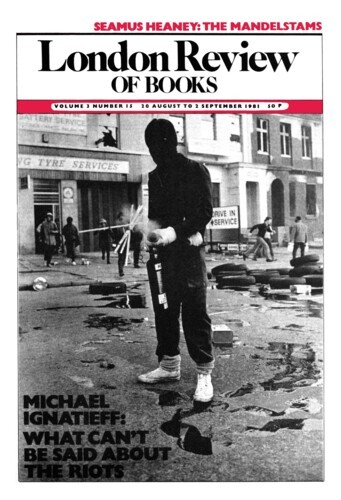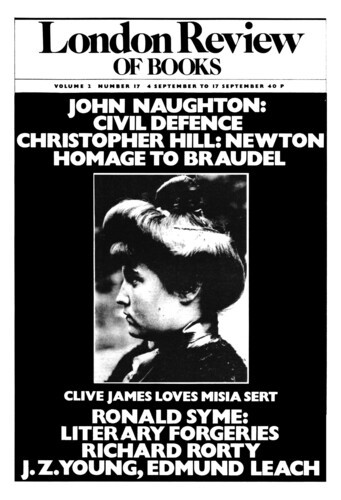Winner’s History
Howard Erskine-Hill, 20 August 1981
Some great and some good things, and some both great and good, undoubtedly came out of the period 1640-60 which Christopher Hill calls ‘the English Revolution’. What came out, however, was not necessarily originated by the period. It is a nice problem to distinguish causation from succession. In 12 short and easygoing chapters, originally the Merle Curti Lectures at the University of Wisconsin, Professor Hill’s account slides to and fro from causation to succession. For example: ‘Locke drew on the experiences of the revolutionary decades’ and is thus an ‘intellectual consequence’ of ‘the English Revolution’; and ‘the great revolution in human thought … echoed from England all over Europe … Harrington, Locke, Newton, Hume and Adam Smith gave the lead to the whole of Europe. Richardson and Fielding, building on 17th-century spiritual autobiographies, and on the writings of Bunyan and Defoe, created the novel, the dominant literary form of the modern age.’


